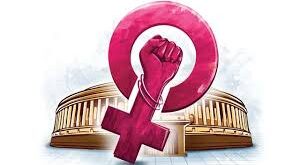TRIPLE-TEST RULE FOR OBC QUOTA IN POLLS
- As the clamour for a caste census grows across India, with several States looking to introduce reservation for the Backward Classes in urban local body polls, the judiciary, over the course of 2022, has established time and again that caste population surveys conducted by the States are not enough to provide for political reservation in local body elections.
- The most recent instance of this was when the Allahabad High Court on Tuesday shot down the caste census conducted by the Uttar Pradesh government to enumerate the Other Backward Class (OBC) population across the State, holding that an exercise of “counting of heads” cannot be enough, prompting would do whatever was required to reserve OBC seats in the local body polls.
Rapid survey
- Within a month of taking office as Chief Minister in his first term, Mr. Adityanath’s BJP-led government had on April 7, 2017 ordered a caste census in the State, issuing directions for a “rapid survey” to count the population of OBCs ward-wise in each municipal corporation, municipal council, and panchayat area.
- A similar survey was called for in a June 2022 government order and based on the population, seats were reserved. Similarly, the Bihar government went on to reserve seats for the Extremely Backward Classes (EBC) in its local body polls.
- The triple-test requires a State government to set up a dedicated commission for a contemporaneous rigorous empirical inquiry into the nature and implications of backwardness specifically with respect to local bodies;
- specify proportion of reservations required for political representation based on the dedicated commission’s recommendation; and ensure total reservations for Scheduled Caste (SC)/ Scheduled Tribe (ST)/ OBC groups do not exceed 50% of the number of total seats.
Political representation
- In the case of Uttar Pradesh, the Allahabad High Court noted that the government’s enumeration exercise had “missed a crucial factor” as it “does not provide for inquiry into political representation of backward class of citizens in municipal bodies”
- holding that the dedicated commission must also ascertain under-representation in municipal bodies (if any) and its extent, and reserve seats in accordance.
- While shooting down the Bihar government’s notification on reserving seats based on population, the Patna High Court had made a similar point on distinguishing the social and education backwardness of a group from its political backwardness.
- Within days of this order in October, the Bihar government re-constituted its Extremely Backward Classes Commission and designated it as the “dedicated commission” to conduct this exercise.
- The Commission submitted its report in a month, in favour of reservations and the State Election Commission notified the polls, which are currently under way.
- Similarly, after the Supreme Court stopped attempts for reserving seats in local body polls of Maharashtra and Madhya Pradesh, both State governments formed dedicated Commissions to look into this, which favoured quota in its reports — reports that the Supreme Court has accepted for the time being.
SOURCE: THE HINDU, THE ECONOMIC TIMES, PIB
 Chinmaya IAS Academy – Current Affairs Chinmaya IAS Academy – Current Affairs
Chinmaya IAS Academy – Current Affairs Chinmaya IAS Academy – Current Affairs



